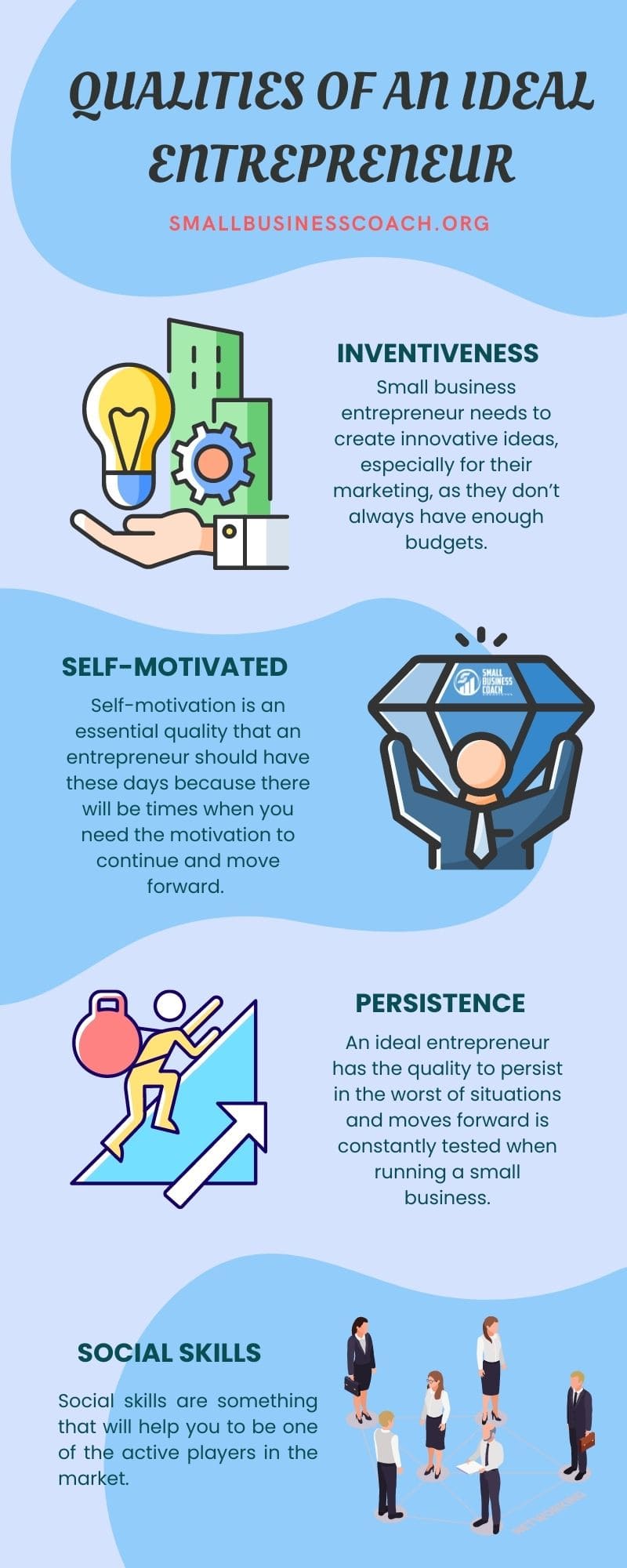SELF MOTIVATION
More often than not, one of the challenges that come with a owning or running a business is the absence of people to set goals, deadlines, and incentives for you to follow and benefit from. You are likely “wearing too many hats” and juggling to many projects. The need for self motivation thus creeps in.
So, how does a business leader/owner stay motivated to become a better person and business leader while simultaneously propelling the business?
Let’s dive into it.
What is motivation?
Motivation is the drive to achieve set goals, be more fulfilled, and generally improve our quality of life. It is that push to succeed at whatever you do.
That said, finding ways to stay self motivated can deliver control of many aspects of your life into your hands. Motivation forms one of the three critical aspects of personal skills that encapsulate emotional intelligence, and its mastery can prove instrumental in business success.
Motivation is made up of four key aspects:
- Personal drive: This is the inner longing to attain and exceed certain standards
- Commitment: Commitment to personal as well as organizational goals
- Initiative: Initiative is the sheer readiness to act on present opportunities
- Optimism: Optimism is the ability to persist in pursuing set goals despite the lingering setbacks and challenges that come
Let’s explore, in some detail, these individual elements that constitute self motivation.
Elements of self motivation
-
Personal drive to achieve can be viewed as ambition or perhaps personal empowerment. It could also be more appropriate in terms of mindset, and this brings two types of mindsets to light: fixed mindset and growth mindset.
There are two types of mindset: fixed and growth.
A fixed mindset is centered on a rigid school of thought that we can’t change our degree of ability. The fixed mindset is based on the idea that talent is ingrained and can’t be acquired by study and hard work.
A growth mindset is based on the more optimistic school of thought that believes skills can be acquired and improved upon by the individual through hard work and effort.
A critical look as the statistics and research reveals that those with the growth mindset believe that abilities can be improved upon and are more likely to succeed in whatever they set themselves to do. Therefore, the growth mindset is an essential aspect of your drive to succeed.
However, the personal drive to succeed isn’t limited to the mindset of growth; it incorporates other elements as timeliness and efficient time management, being well organized, and avoiding distractions.

-
Commitment to goals
The research supports the notion that the setting of goals is essential to general well being. As the saying goes, “if you aim at nothing, it is easy to achieve it.” We all need something to aim at in life. That gives us a sense of purpose and direction. Being fully conscious of what you desire to achieve and setting relevant goals to meet that purpose is vital in staying self motivated.
You should note that it isn’t just setting lofty goals and expectations in life but pursuing them with the commitment to attain them. When committed to our set goals, the drive to attain them comes almost effortlessly.
3. Initiative
The initiative is the ability to take advantage and act upon opportunities when they present themselves.
In the face of opportunity, it can be easy to hesitate, which can cost you the opportunity altogether. But it’s not just about rushing to act; there must be careful consideration and a cautious approach, which must not be confused with hesitation. It is essential to carefully think things through and be sure of the decision you’re about to make. It isn’t just about having the courage to act, but the equivalent risk-management skills in the action.
While courage helps you overcome the fear of the unknown as you engage an opportunity, risk management plays an essential role in ensuring you jump on the right opportunities, with an understanding of the risks involved, knowing whether they fall within your ability to manage them.
4. Optimism and resilience
Optimism is the ability to stay positive, seeing the bright side of things, and thinking in a positive direction.
Resilience is the ability to get back on your feet after a setback or to stay positive amid challenges. Though not the same thing, optimism and resilience are closely related.
Resilience helps you manage negative emotional responses to challenges by staying positive and using rational thinking to approach situations.

Intrinsic vs. Extrinsic motivators
There are two main categories of motivators: intrinsic and extrinsic motivators; the former is related to what we want to do, and the latter is related to what we have to do.
Intrinsic motivator
Intrinsic motivation pertains to the situation you perform a task or action based on the perceived/expected satisfaction derived from the task or action. It relates to what you what to do – having fun, being interested, and your challenges.
Extrinsic motivator
Extrinsic motivation pertains to the situation you perform a task or action to achieve external rewards like money, power, good grades, etc. Extrinsic motivation relates to what you have to do and may not derive personal pleasure or satisfaction.
People are motivated at different times by different things in different ways in their lives, and the same action may sway towards one of the two motivators or may combine both.
How to be self motivated in business
-
Have a personal mission statement
The business’s mission statement describes the organization’s generic goals, core values, and culture from a broad perspective. Every business has or should have that. This gives direction to the organization and not only boosts self motivation, but also motivates stakeholders and staff.
For the same reasons a business should have a mission statement, every business owner should have a personal mission statement as it gives clear direction and can therefore be used as self-motivation. It would help if you cataloged it – write it down, read it, memorize it, and internalize it until it becomes part and parcel of you. That will serve as a constant reminder of your personal goals and keep you focused and motivated towards attaining them. Without a personal mission statement, what are you shooting for? What do you hope to achieve?
-
Having a mission statement is step one of self motivation, but the most important step is articulating a plan to execute the mission. If you will become a master of communicating the vision, values and mission of your organization, you will be self motivated.
Without a plan, then the mission is of no use. Just as a business can’t thrive without a plan to accompany the mission, so too do you need your personal and professional plan, with well structured and attainable long-term and short-term goals.
Like the mission, the plan should be penned down, but it is a living document. It is organic and subject to change as the personal and professional circumstances change. The general idea here is to ensure you have a working plan you’re following.
-
Have a routine, But also have some variety
How you start every opportunity to do better – the day can help you stay motivated. Therefore, you should develop a tremendous daily morning routine – one that will help you be alert, focused, and prepared.
However I’ve coached more than a thousand business leaders and many can easily get burned out from doing the same thing again and again. If you thrive on variety make sure that you design your own job description to include various kinds of work activities.
-
Have time for yourself
Being a business owner means you most likely invest a great deal of your time in your business, about its daily affairs and consumed by your desire to see it succeed. But as much as you need to invest time in the business towards business success, you should schedule some time for yourself each day to keep your self motivation high. Give yourself time margins to take a walk, relax, meditate and even exercise. Such set-apart moments can help you set attention on some personal aspects like your diet, hydration, and rest. All these will go a long way to keep you self motivated.
-
Have reminders for plans set
Even with a plan, it can be challenging staying on schedule and keeping up with your routines. As such, you should have reminders set for critical activities throughout the day and make it a habit of setting these reminders. Use alarms to help you stay focused on the most critical tasks of the day. That will keep you focused and motivated towards attaining your set goals.
A great application of this is in time-blocking features, especially on your phone, that helps partition your day among specific tasks, with reminders to help you keep up with your goals and keep your self-motivation alive.
-
Reward yourself, and celebrate your accomplishments with your team
Incentives are a great motivation tool, and you can use that on yourself. Reward yourself for goals and tasks you accomplish. Recognizing the small wins will boost your morale and keep you motivated as you press on towards achieving your set goals.
When you achieve your goals be sure to acknowledge your team and family. Celebrate those wins every time with parties, dinners in or out, and team building activities!
-
Engage your friends
Sometimes, peer pressure can be a great source of motivation. So, engage your friends and colleagues to help motivate you in what you’re doing. You could even do this digitally by using apps, as you challenge each other positively towards attaining your goals.
-
Engage in inspirational activities
Sometimes, to keep your self-motivation high, you need to look outside your comfort zone for motivation. You could watch an inspirational movie, a motivational talk show, or podcast while walking, eating or exercising, in your time. Inspirational activities will remind you to stay positive and motivated and will enhance your intrinsic motivation levels towards success.

-
Stay positive
There isn’t a standard across the board for what makes people happy. As such, you have to choose to be happy, irrespective of how things are going. By staying positive, you can better rationally approach situations with the mind to prevail. This is important to stay self motivated.
So, look out for the right side of things, and be optimistic.
-
Sleep
Finally, never underestimate the power of sound sleep for staying self motivated. Irrespective of the day’s failures or the missed goals, nothing is worth compromising a good night’s sleep for. When you are well-rested, your thinking is fresh as you approach tasks with great self-motivation
-
Communicate with others
Communicating with others, especially people you consider, can inspire you and keep you motivated and energized. A simple conversation with an optimistic person can significantly motivate you, so be open to share ideas and communicate with others.
-
Engage your area of interest
Being self motivated is inextricably linked to the degree of interest you have in what you are doing. If interest is absent from your current task, then your motivation is short-circuited, and you should consider dropping it and switching to other more personally exciting activities. Even when there is no interest in the task, but it is expedient, find ways to correlate the activity to your ultimate goals. That will essentially tunnel motivation through your goals into what you’re doing, birthing new springs of energy and enthusiasm, all leading towards success.
-
Self-acknowledgment
How do you know you are motivated? You should, as an individual, know when your self motivation levels are adequate. Know yourself and be acknowledge it when you’re motivated.
-
Monitor and record your success
You should have systems to monitor and record your successes for tasks, assignments, projects, activities, etc. When you see a positive trend in successes registered in what you do, you automatically become more motivated to do and be more. So, catalog your successes and keep yourself motivated.

-
Increase energy level
Energy is necessary for self motivation. So, engage in activities like exercises. Take regular breaks and rest to keep your energy ever-high.
-
Assist, support and motivate others
Play an active role in motivating others. Be open to sharing your views and ideas with your friends, peers, colleagues, and get involved in helping them stay motivated. When you see others doing well and succeeding, you get self motivated too. Help others to stay motivated, and you will keep yourself motivated.
-
Encourage learning
Strive to learn more in every aspect of your life and work. Learning makes you more confident in taking on new tasks/assignments and keeps you self motivated.
“To become self motivated, read client/customer reviews of your performance. Focus on how you are changing lives with your products or services. When I read my client reviews I get excited and ready to change some more lives!” Alan Melton, Founder and CEO Small Business Coach Associates
Tips from 15 small business owners and entrepreneurs on how to stay self motivated
-
Barry Maher
“You can’t wait for outside inspiration. You’ve got to see motivating yourself as an essential part of the process, maybe the most essential part. Because when it comes right down to it, nobody else can motivate you. All anyone else can ever do is talk you into motivating yourself, is sell you on the idea of motivating yourself. You motivate you. There’s nobody else who can be with you every hour of the day or the night when all those thousands of little decisions that lead toward your goals or away from your goals have to be made. You’ve got to be your own guru, your own favorite motivational speaker.”
– Barry Maher, Author/Speaker/Founder of BarryMaher.com
-
Catherine E. Storing
“Remember, it is not about you. Whenever you feel frustrated or stuck, it is because you are concentrating on you instead of the outcome your clients/customers will receive by working with you.”
– Catherine E. Storing, Chief Style Coach of The Confidence Building Coach
-
Josh Waldron
“This may seem like a simple tip, but as an entrepreneur, I stay motivated by exercising. Since most of my work is computer-based, it’s very important for me to push my body physically and enjoy fresh air and sunshine on a somewhat regular basis. Exercise refreshes my brain, inspires creativity, and encourages a positive outlook.”
– Josh Waldron, Founder of Studio JWAL, LLC
-
Ryan Celestain
“As an entrepreneur, I have two tips that I personally use to stay motivated. The first tip is to focus on the big picture. You must know exactly what it is that you want. Your vision of the future of your company/product/organization must be crystal clear. When you can see with great clarity what it is that you want, you have no problem doing the work necessary.”
– Ryan Celestain, Founder of RyanCelestain.com
-
Adam Kirsch
“Often, if I find myself lacking in motivation, I talk to the users of our systems. This allows me to both see how much of an impact we have had to date and what other things we can do to make their lives easier. Working with the customers and knowing that we can still improve our product for them really inspires me to keep working, even if circumstances are challenging.”
– Adam Kirsch, Chief Operating Officer of Yorango, Inc.
-
Kelly Fallis
“When you’re overwhelmed, pick the biggest/hardest task that will have the most impact, crank the tunes and dive in for an uninterrupted evening session — I love the 10 – 2 am session for minimal interruptions personally – odds are with total concentration, you’ll make huge progress, and then the rest will fall into place and seem much easier.”
– Kelly Fallis, CEO of Remote Stylist
-
Konrad Billets
“Have a purpose behind your work. Tie it to something bigger than yourself and remind yourself of this purpose constantly! I also repeat one of these to myself: “I can do hard things,” “Your competitor is probably working right now,” or “Go all in.” If those don’t work, I jam on the banjo for an hour, then get back to work.”
– Konrad Billetz, Founder and CEO of Frameri Eyewear
-
K.L. Graham
“Create a schedule. Set aside time for work tasks and time for family and leisure time. Don’t let them mix or interfere with one another. This prevents burn-out and keeps you motivated to complete tasks because you can visually see that once you get your tasks done, you have time to enjoy yourself.”
– K.L. Graham, Author of “E-Business Success: Using Technology to Take Your Business to the Next Level” and Founder of Sirius Web Solutions
-
Kelly Daugherty
“When we have had challenging times, I remember that most small businesses hit rock bottom before their big break came. If you still believe in your idea, you will make it succeed. Just keep being persistent. Remember, if it were easy, everyone would be doing it.”
– Kelly Daugherty, Managing Partner of Smashing Golf & Tennis
-
Laura L. Barkat
“The long view is the strong view. Business mirrors life: you’ve got to keep at it to make it work. A long view helps, rather than looking just at this month’s (or even this year’s) stats, earnings, accomplishments. For instance, in the publishing industry (our industry), the bulk of sales comes from titles more than a year old.”
– Laura L. Barkat, CEO of T. S. Poetry Press
-
Simon Tam
“Make a Game of It: When there’s an arduous task that I don’t want to do, I apply a little bit of game theory: I create a small competition between my employees and me, try and set or break records, or even have a simple countdown to my goal. Competition is a great way to motivate ourselves to go the extra mile. When I do reach my goal, I make sure to reward myself as well as the employees involved.”
– Simon Tam, Author of “How to Get Sponsorships and Endorsements”
-
Carrie Devorah
“The best motivation is finding a Groove that works and keeps you moving forward. The groove can be anywhere. So listen… try and know that each step is a success.”
– Carrie Devorah, Founder of The Center for Copyright Integrity
-
Ian Aronovich
“To stay motivated, you have to keep reminding yourself that a good business with a strong, reliable source of revenue can stay afloat even in the roughest of times. That’s why – while you have to change – you need to work to build a strong business by testing different revenue models, simulate your business in various economic environments, and brainstorm what new methods your business can use to bring in more profits. If or when the economy falls into rough times, because you’ve done the work to build a good foundation for your business, you’ll be more optimistic and maintain the motivation that’s necessary to keep pushing forward.”
– Ian Aronovich, Co-Founder and CEO of GovernmentAuctions.org
-
JeFreda R. Brown
“We business owners all have experienced the tire kickers who waste our time. Our goal is to reach the clients and customers who really need our services and will pay for them. During those times when it’s kind of slow, and you start reconsidering if you’re doing the right thing, a client will come along who is grateful for your help. Receiving feedback from the clients who let you know you have truly enhanced their life is what keeps me motivated and going.”
– JeFreda R. Brown, CEO of Brown Accounting Solutions, LLC
-
Bill Simpson
“I have my dream goal written down on paper and taped to the wall where I can always see it. Each day, I start off by taking 5 minutes, closing my eyes, and visualizing and daydreaming about making it to that goal; how I would feel once completed, what I would do to celebrate reaching the goal, etc. That provides the motivation each day to work towards that goal. If I ever hit a really big bump in the road and things get really tough, I just take 5 minutes to again visualize reaching that goal and continue to move forward.”
– Bill Simpson, President & CEO of Life Document Storage, LLC
















































